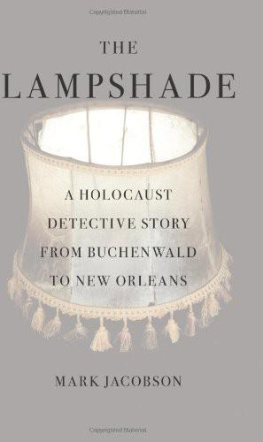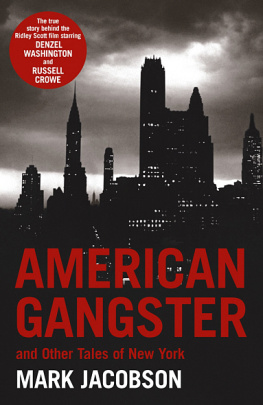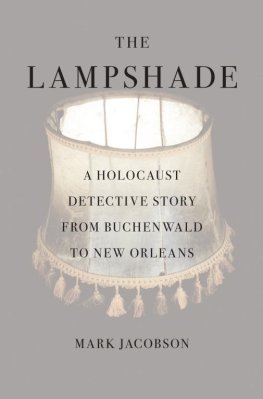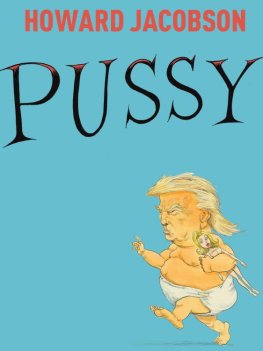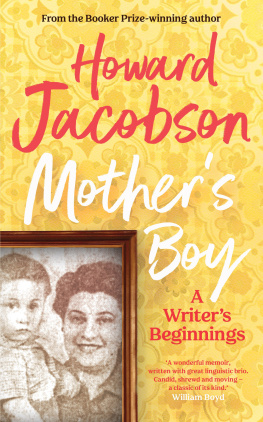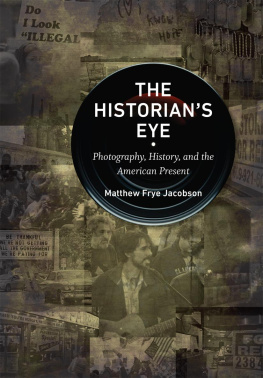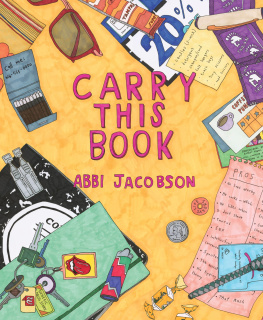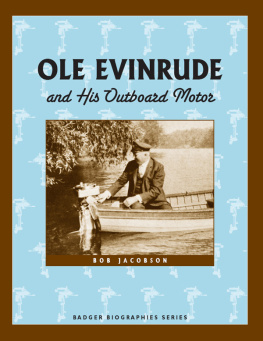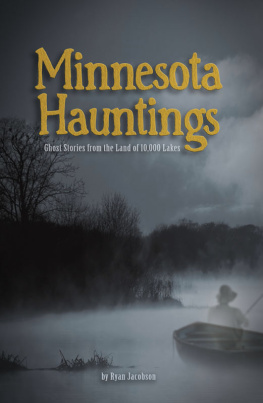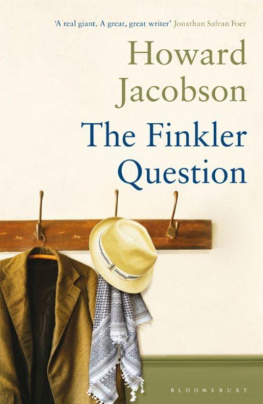Teenage Hipster in the Modern World
Also by Mark Jacobson
Novels
Gojiro
Everyone and No One
Nonfiction
12,000 Miles in the Nick of Time: A Semi-Dysfunctional Family
Circumnavigates the Globe
The KGB Bar Nonfiction Reader (edited)
American Monsters (edited, with Jack Newfield)
Teenage Hipster in the Modern World
From the Birth of Punk to the Land of Bush: Thirty Years of Millennial Journalism
Mark Jacobson
Foreword by Richard Price
Photographs by James Hamilton

Copyright 2005 by Mark Jacobson
Photographs 2005 by James Hamilton
Foreword copyright 2005 by Richard Price
All rights reserved. No part of this book may be reproduced in any form or by any electronic or mechanical means, including information storage and retrieval systems, without permission in writing from the publisher, except by a reviewer, who may quote brief passages in a review. Any members of educational institutions wishing to photocopy part or all of the work for classroom use, or publishers who would like to obtain permission to include the work in an anthology, should send their inquiries to Grove/Atlantic, Inc., 841 Broadway, New York, NY 10003.
Published simultaneously in Canada
Printed in the United States of America
FIRST EDITION
Library of Congress Cataloging-in-Publication Data
Jacobson, Mark.
Teenage hipster in the modern world : from the birth of punk to the land of Bush : thirty years of millennial journalism / Mark Jacobson ; foreword by Richard Price ; photographs by James Hamilton. 1st ed.
p. cm.
Collection of articles originally published in various periodicals.
eBook ISBN-13: 978-1-5558-4656-5
I. Title.
PN4874.J29A25 2005
814.54dc22 2004060859
Black Cat
a paperback original imprint of Grove/Atlantic, Inc.
841 Broadway
New York, NY 10003
For my mom, who kept the scrapbook
Also Michael Daly, a hardworking guy
And in the memory of Jack Newfield,
who knew where the bodies were buried
Contents
Foreword
Ive always felt that the only subjects worth writing about were those that intimidated me, and the only writers worth emulating were those who left me feeling the same way. Ive felt intimidated by Mark Jacobson since 1977 when I first read Ghost Shadows on Chinatown Streets, his portrait of gang leader Nicky Lui, in the Village Voice. I remember being overwhelmed by both Jacobsons reporting skill and intrepidness, empathizing with his attraction to the subject; could see myself attempting something like that if I had both the writing chops and the nerve. It was one of the most humbling and enticing reading experiences of my life, and in many ways set me on the path to at least three novels.
Jacobson belongs to that great bloodline of New York street writers from Stephen Crane to Hutchins Hapgood to Joseph Mitchell, John McNulty, and A. J. Liebling, through Jimmy Breslin and Pete Hamill, and now to himself and very few others (his friend and peer Michael Daly comes to mind). Jacobson is drawn to these streets and to those who rose from them: the outlaws, the visionaries, the hustlers, and the oddballs. His voice is often sardonic, bemused, and a little in awe of the man before him. Like a judo master, he knows how to step off and let the force of these personalities hoist their own banners or dig their own graves. But even in the case of the most heinous of men, Jacobsons ability to unearth some saving grace, some charm, or simply a shred of sympathetic humanity in the bastard is unfailing.
From heroin kingpin Frank Lucas to the Dalai Lama, Jacobsons fact-gathering is impeccable, his presentation of the Big Picture plain as day, the conversations (you cant really call them interviews) often hilarious. Most important though, his love for this world, these people, is apparent in every nuance, every finely observed detail. His is the song of the workingman, the immigrant, the street cat, the cryptician with more crazy-eights than aces up his sleeve, and Jacobson knows that the bottom line for this kind of profiling is self-recognition; each character, each sharply etched detail in some way bringing home not only the subject, but the reader and author, too.
Richard Price
Authors Introduction
Working in magazine journalism, which is most of the work I have done for the past three decades, can have its downside. You can make a living, but not a large one. You can get into shows and scenes for free and not have to pay for many CDs or books. This is a plus. But the truth is, most of the CDs and books they send you arent anything youd ever want to listen to or read. Plus, they clog up your house, and then you have to have a tag sale, during which some jerks dog will inevitably pee on your merchandise. There is much to bitch about in the magazine-writing game: the onslaught of celebrity journalism, which has taken a lot of the fun out of it; the increasingly crappy outlets to write for (which lends credence to the notion that the form is dead or dying); the humiliating process of attempting to get people to pay you the money they owe you; the chopping up of perfectly good articles, et cetera and so on.
The subhead of this book, from the birth of punk to the land of Bush, lays out the chronological territory. The earliest pieces date back to the advent of punk rock and the most recent ones were written during the presidency of George W. Busha thirty year passage during which I have been transformed (evolved? devolved?) from the twenty-eight-year old wack-job party boy on the cover of this book (James Hamiltons photo was taken in the formerly funky downtown Las Vegas in 1977) into the gray-haired, lumbering thing I am today. Not that Im complaining, lots of guys I know are dead. But there is also an unsettling full circle in this three-decade-long journey. The supposed punks of the middle 1970s, skulking about in a landscape of unprecedented urban decay, imagined themselves as leather-jacketed neoprimitives, cartoonish survivors in a post-apocalyptic world. Thirty years later, at the outset of Bushs second term, after the true terror of 9/11, the city, if not the entire country (downtown Vegas is now a covered mall) wears a shinier skin. The streets are fixed up, photo-shopped, ready to rumble. Yet, there is undeniable suspicion this veneer covers a darker kind of soul.
Still, the reporters job remains to write about whatever is put in front of him, to try to translate it into terms comprehensible to themselves and, hopefully, readers. It is a 24/7 job, the kind of hours I like. Besides, writing for magazines has gotten me around. Around town. Around the world. Ive written about diamond miners in Angola, and then, two weeks later, found myself sitting in Yoko Onos living room at the Dakota. This sort of cognitive dissonance and intellectual turnover has always been the true joy of my career path. It is an enduring rush, to be able to say to myself: Look where I am.
In the end that is what it comes down to: The redemptive sense of mission Ive had standing at the point of the Cape of Good Hope watching the Atlantic and Indian Oceans run together (theyre different colors), or walking down the dark staircase of the Livonia Avenue stop on the New Lots Avenue train line (long the consensus choice for the scariest spot in New York City). No matter where I was, someone sent me. Someone was paying me to be there, to write down what I saw and what I felt. They did this because, mistakenly or not, they were under the impression that some reader somewhere might actually care what I thought, what I felt, who I talked to, what they said. For me, that is more than enough.
Next page

